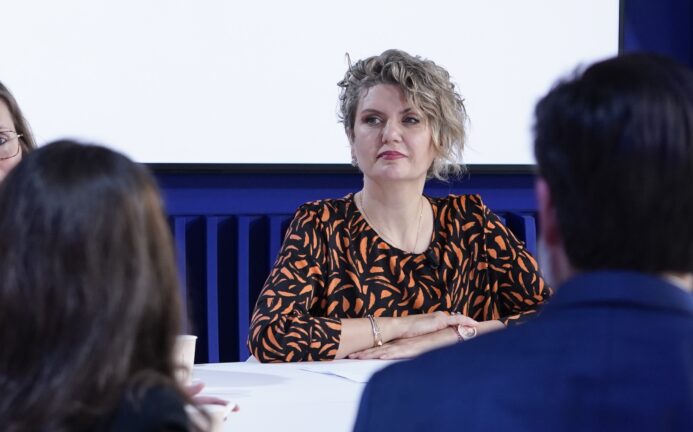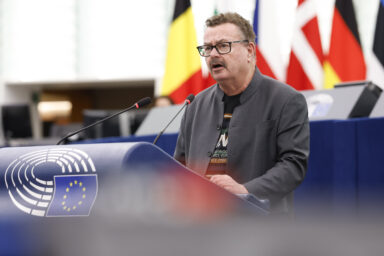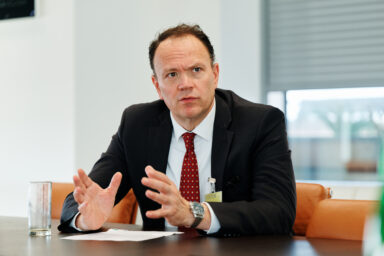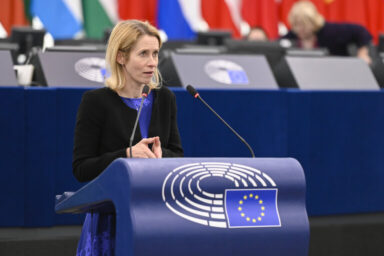A whole host of tricky issues is connected to migration, and none of them has a neat solution ready. The hot topic of today’s European politics is further complicated by the fact that migration policies are hopelessly splintered along country lines – even as the very raison d’être of the Schengen area makes their harmonisation extremely desirable. Başak Yavçan, Head of Research at the Brussels-based think-and-do-tank Migration Policy Group, discussed the ins and outs of the migration conundrum on the EU Perspectives podcast in Brussels‘ European Parliament with MEPs Lukas Mandl (EPP/AT) and Tomáš Zdechovský (EPP/CZE), and with fellow experts in the field, Katarína Cséfalvayová, Director of the Institute for Central Europe, and Camille Le Coz, Director of Migration Policy Institute Europe.
Ms Yavçan, who holds a PhD from the University of Pittsburgh, is responsible for all of MPG’s research activities and research agenda development. She conducts comparative analyses of migration and integration statistics and policies at both the national and local levels. It was only natural that she would field questions on the EU Perspectives podcast regarding the current disappointing state of affairs. What does the European Union need to do in order to improve its less-than-stellar record on migration?
“We’ve talked about harmonisation, actually, how being united is so important on this issue,” Ms Yavçan tackled the issue. “Unfortunately, we do see a lot of divergence of the return policies across the EU members states. In particular, there are different directives in place, there are different dimensions of return, voluntary or forced returns; they are also implemented differently. Alternatives to return are offered at different rates: in some countries they don’t exist, while in other countries, these are very extensive. Regularisation programmes and human rights provisions are also very different in the ways they are being implemented.”
If this barrage of obstacles appears nigh insurmountable to the reader, the appearance is pretty much spot-on, Ms Yavçan continued. ”This is one of the concerns of many non governmental organisations dealing with this issue. In particular, the issue of return hubs comes to mind, because already there is so much divergence within the EU when it comes to how monitoring and human rights provisions are to be ensured – even within the EU itself.”
Now add to that another layer of complexity, as the return hubs are, according to the recently floated ideas, to be established in third countries whose record on human rights is sometimes patchy, putting it charitably. “How are we going to ensure that human rights will be well-respected in these third countries where return hubs are established? There is also little concern for the interests of the third countries with these return agreements.”
You might be interested

This is made particularly difficult by the fact that while Europe has to deal with urgent migration issues swiftly, it needs to find long-term, sustainable solutions rather than just a quick fix. “That seems to be an issue as well, because when we talk about returns, it’s usually not really far-sighted to see it as a one-off event – not when we look at the studies of the returnees. Someone who is returned home actually tends to come back again,” the Migpol Group top researcher went on.
That brings up the issue of sustainability of return, making sure that people who are returned will actually stay where they are. “That requires that they are reintegrated into the countries of origin,” Ms Yavçan said. This, however, may prove fiendishly difficult.
“In a lot of cases, these are rejected asylum seekers, and for them, it may be…” she paused. “There could be peace in their country right now. But is there really an inclusive societal environment, economic environment for them? And that requires the involvement of the third countries. There’s a lot more to be mentioned, but I’ll stop it at that,” Ms Yavçan added rather mercifully.
The return hubs seemed to be a highly controversial topic. The mere mention of them prompted Ms Le Coz to ask a fundamental related question. “I think the starting point is, why are we talking about this return hubs to begin with? And here I go back to to a point that we we’ve been discussing, which is cooperation with the countries of origin, which has been a really critical issue,“ the Director of the Migration Policy Institute Europe said.
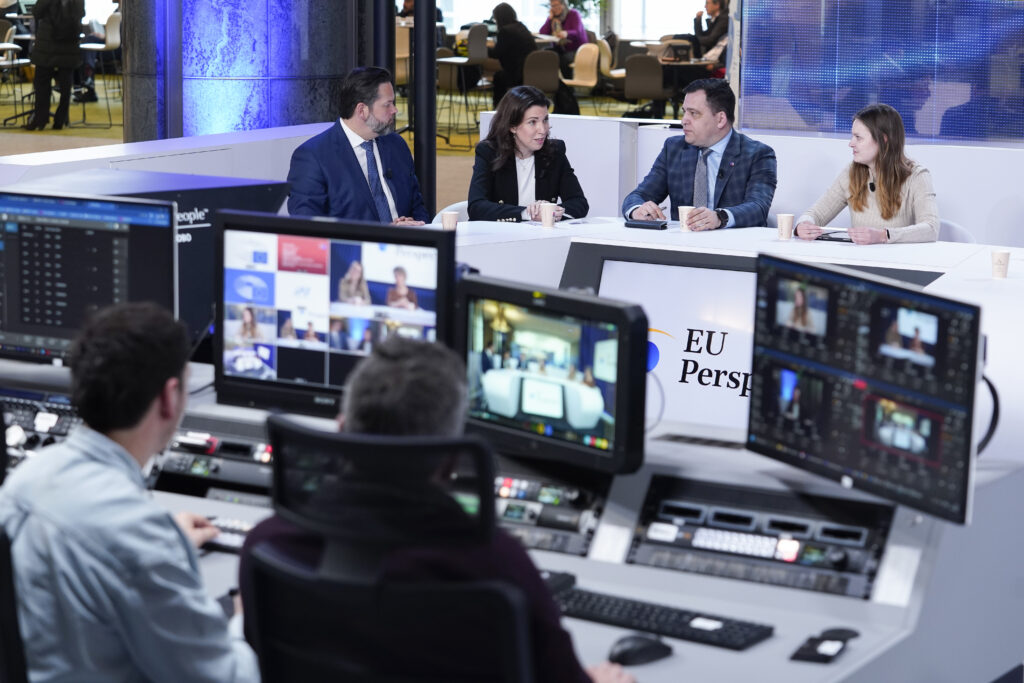
The concerns about the return hubs are by no means allayed by the fact that so far, the idea hasn’t really taken off. Rishi Sunak, the then-PM of the United Kingdom, floated the Rwandan “externalisation model” last year, but the policy failed to materialise. Was that a lesson clear enough? Did European politicians learn that such models would not work properly?
“I think this is a great question and that’s also one thing that we try to really focus on, analyse well, what kind of outcome do certain policies bring and I think. Camille’s point really touches upon the issue where the previous externalisation models actually have shown us that it’s not always effective,” Ms Yavçan offered a diplomatic answer.
Quite apart from the unsettling human rights aspect, there is another set of issues such potential agreements may bring to life as it could introduce an entirely new dynamic into the relations between European countries and the countries hosting the return hubs. “(We know of instances that agreements) to keep refugees in their borders in return for financial assistance and developmental assistance have backfired. They have not been really long-term solutions. When there are joint interests, joint preferences on policies, (the agreements) may last, but whenever a little tension appears, these arrangements actually empower those third countries, and that brings us to the instrumentalization of migration,” the researcher said.
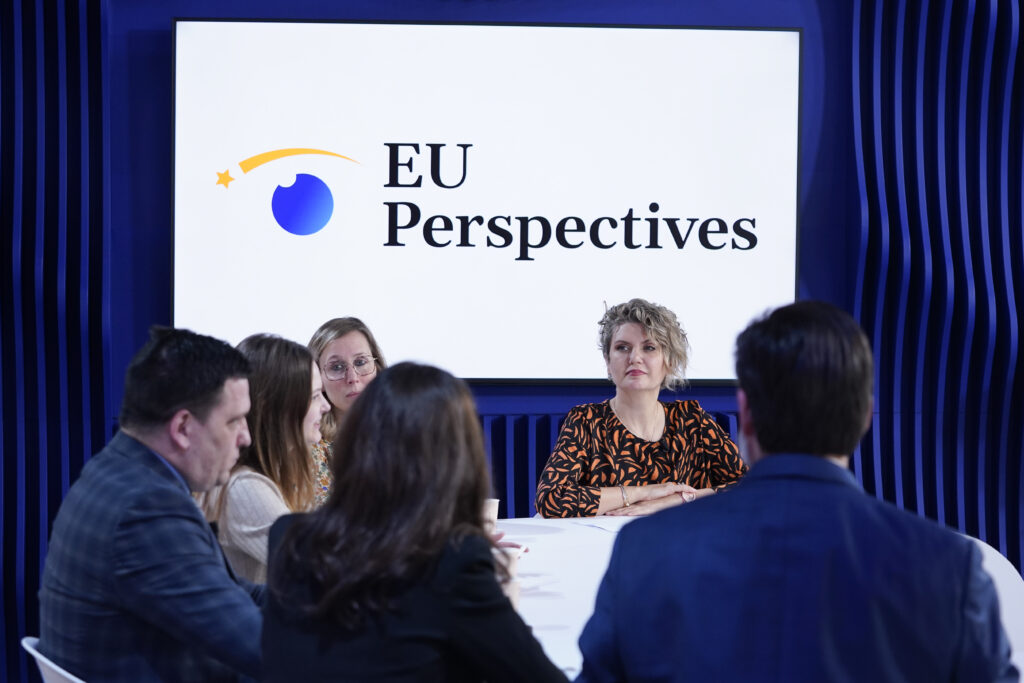
“And so we’ve seen that doesn’t always work and it really empowers the third country vis-à-vis the EU. And is that really a sustainable solution? And then the question arises, why would a third country accept to be a return hub, right? What would be the benefits? And if the benefits are very short-term, whenever there is a potential conflict between that country and any of the member states, it can really backfire,” Ms Yavçan went on to mention the related tensions between Morocco and Spain, Belarus and the EU, and Turkey and the EU.
The Migpol Group expert then suggested that the return hubs would be set up in a better way if “opposition parties, maybe NGO’s, should be at the table negotiating these return hubs and the return agreements”.
The MEP Lukas Mandl (EPP/AT) tackled the problem from a different – even if related – angle, advocating for a better screening system in the first place. “This is also where we are an example for the rest of the world, actually. We’ll have a right of asylum if it’s given by law, and these people will find it easier to integrate and it will be easier for them to arrive in Europe when not so much of them will have to be sent back.”
